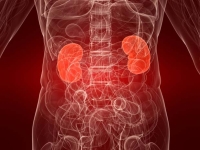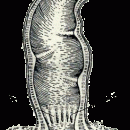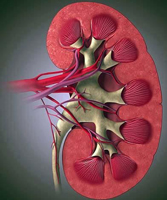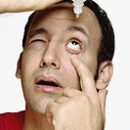Pyelonephritis - definition of disease, symptoms, causes, diagnosis and treatment.
Content
- What is pyelonephritis? Causes of the disease
- Symptoms of acute and chronic pyelonephritis
- Diagnosis of pyelonephritis
- Treatment of pyelonephritis
Imagine billions of tiny pests intensively breeding in the human body that poison its livelihoods and toxins. The defeat of the infection of the selection authorities will lead to serious consequences, will affect many processes. This is what happens when pyelonephritis.
What is pyelonephritis? Causes of the disease
 Pyelonephritis — This is an infectious inflammatory disease of the kidney, the cause of which is nonspecific infection. This is the most common pathology of the urogenital system. Women's disease is diagnosed much more often than men.
Pyelonephritis — This is an infectious inflammatory disease of the kidney, the cause of which is nonspecific infection. This is the most common pathology of the urogenital system. Women's disease is diagnosed much more often than men.
Most often, the disease is caused by Escherichia Coli bacteria (85%), Proteus, Enterococcus, Pseudomonas Aeruginosa. Ways of dissemination of infection — with blood flow and upward pathway from the underlying departments of the urinary tract.
Risk factors for pyelonephritis
A number of states contribute to the emergence of infection:
- Violation of urine outflow due to a mechanical obstacle (anomaly of the development of the genitourinary system, urolithiasis, pregnancy, neurological pathologies, prostate adenoma);
- Urological procedures and interventions;
- immunodeficiency conditions, diabetes;
- Violation of personal hygiene rules.
Symptoms of acute and chronic pyelonephritis
Distinguish the sharp and chronic form of the disease.
Symptoms of acute pyelonephritis
Symptoms of acute kidney inflammation are:
- pain in the area of the loaf of varying degrees of severity;
- Fever, chills with sharp increase temperatures up to 39-41 °WITH;
- nausea, vomiting;
- weakness, dizziness;
- Dysuric phenomena (pain, burning in urination, pain at the bottom of the abdomen, rapid urge to the toilet).
Pyelonephritis in children
Acute pyelonephritis in children can proceed with the predominance of common symptoms (temperature, fever, nausea, vomiting, headache, dizziness and weakness) above the local (no lower back pain). Often the disease is disguised as a sharp surgical pathology of the abdominal organs (intensive abdominal pain).
Pyelonephritis in older people
With age, there is a decrease in all the functions of the body. As a result, the disease in elderly and senile people proceeds with minimal symptoms. Maybe lack of high temperature and pain. Therefore, inexplicable weakness, dizziness, no appetite and subfebrile temperature — reason for careful examination.
Pyelonephritis during pregnancy
Closer to the end of pregnancy, the growing uterus can break the outflow of urine, which creates prerequisites for the occurrence of the so-called gestational pyelonephritis. Due to the physiological decrease in immunity during this period, any infection quickly leads to sepsis, prestal and other heavy complications. For the prevention of kidney inflammation, daily walks, gymnastics. It is not recommended to lie and sleep on the back.
Symptoms of chronic pyelonephritis
 Chronic kidney inflammation can leak over the year, interlacing with periods of exacerbation. Outside the recurrence, the symptoms of the disease are practically absent. Stupid urination rapid pain may be observed. The exacerbation provoke raw weather, supercooling, usually in spring and autumn.
Chronic kidney inflammation can leak over the year, interlacing with periods of exacerbation. Outside the recurrence, the symptoms of the disease are practically absent. Stupid urination rapid pain may be observed. The exacerbation provoke raw weather, supercooling, usually in spring and autumn.
Long-term chronic pyelonephritis leads to sclerosis, scar changes and the reduction of connective tissue. In the final stage of the disease, chronic renal failure arises. Moreover, organs regulate vascular tone, producing special substances. Therefore, chronic pyelonephritis leads to renal arterial hypertension.
Chronic pyelonephritis always provokes anemia.
Diagnosis of pyelonephritis
The diagnosis is made on the basis of data of laboratory and instrumental research. Main them of them:
- general urine analysis;
- Bacteriological research and urine sowing with the determination of sensitivity of infection to antibiotics;
- Ultrasound kidneys;
- An objective examination of the patient.
In chronic pyelonephritis, an excretory urography is carried out to assess the kidney function. The method allows to determine the deformation of the cup of the body of the organ, the presence of scar changes and the essence of the ureters.
Treatment of pyelonephritis
The disease requires mandatory treatment. Antibiotics when kidney inflammation — Preparations of the first row. Adequate and rational antibacterial therapy in the acute period eliminates the infection, prevents complications. Without these drugs, the pathological process in the kidney acquires purulent. As a result, a purulent cavity is formed — abscess. Treatment of complicated pyelonephritis may require operational treatment and even removal of the affected body.









